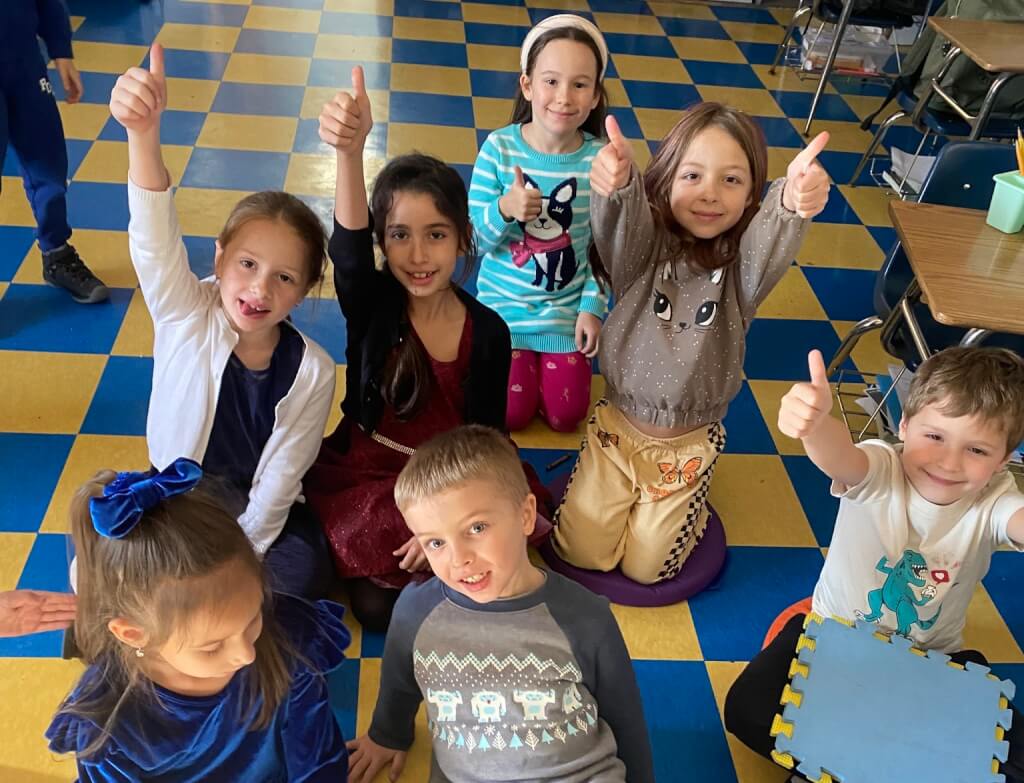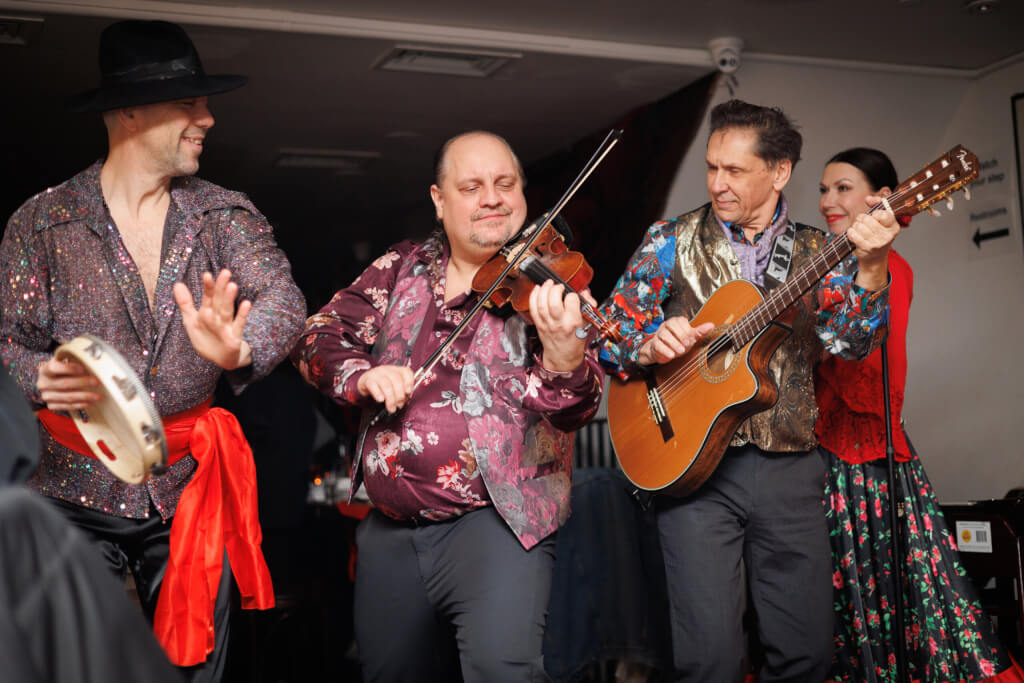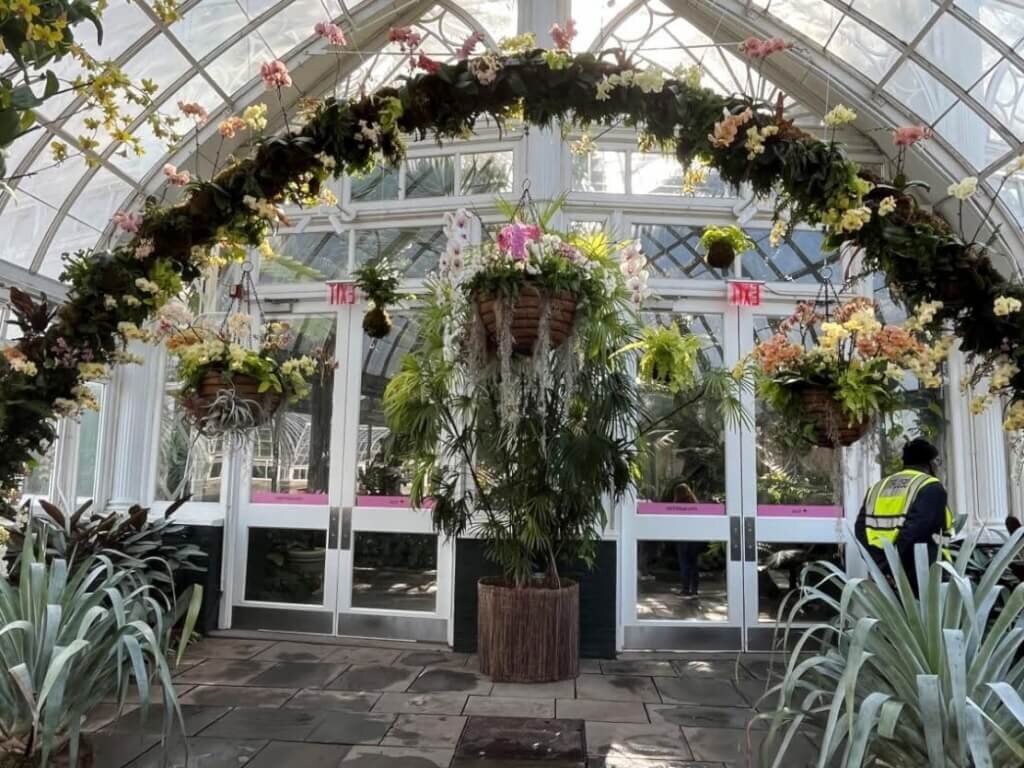How and why a small town in New York State became a hub for refugees from all over the world
'11.02.2022'
Nurgul Sultanova-Chetin
When government soldiers began shooting at crowds of civilian protesters, May Sabe Pyu knew she had no choice but to flee Myanmar. Since the beginning of the coup until last fall, the military has killed at least 1000 civilians, many of whom participated in peaceful protests. Syracuse.
“Nothing is safe in Myanmar,” said Pugh, a well-known women's rights activist in the Southeast Asian nation. “The military can easily find you. If I get arrested, I could spend many years in prison.”
So, a year ago, without a husband, a son, and two daughters, Pugh arrived in Ithaca, New York State, for 13 km.
On the subject: 'Brighton 4th': A film about Russian-speaking immigrants in New York conquers US cinemas
Pew is now part of a vast community of refugees, asylum seekers and dissidents. They settled in Ithaca, a city seemingly in the middle of nowhere in southern New York. Home to two universities located in New York's scenic Finger Lakes neighborhood, it has become an unlikely destination for those fleeing dangerous situations in countries ranging from Myanmar to Afghanistan, Venezuela and Syria.
Pew said that well before the 2021 coup, she was sued for organizing an International Day of Peace parade without permission from local authorities. The trial lasted 14 months. The case was eventually dismissed by an amnesty decree issued by the President of Myanmar. The case was also dropped because it attracted intense media and international attention.
Despite the constant threat from law enforcement and the opportunity to hide at the time, Pugh continued her activities. Although she always knew that she could face much worse than a lawsuit.
Port during a storm
Recently, Ithaca has become one of the main refugee resettlement centers in New York. In December, the city welcomed 10 Afghan refugees fleeing the Taliban after a group of fundamentalists took over Afghanistan amid US troop withdrawals. They joined a growing community in Ithaca which, according to Ithaca Journal, in 2016 began to accept 50 refugees a year. For fiscal year 2020, New York State adopted 820 refugees. Most of them - 520 people - were relocated to upstate New York.
Ithaca, about 250 km from New York, may seem like an odd place for a refugee to start a new life. Looking like a 1980s time capsule with relics such as the Center Ithaca food court and the many boxy, modernist collegetown apartment buildings, Ithaca is an up-and-coming city located in one of New York's few politically red districts.
The Ithaca Congressional District has consistently voted Republican since 2012. The county voted for the 45th President Donald Trump in 2016 and 2020. Ithaca and Tompkins County, on the other hand, are liberal regions. In the 2020 election, Tompkins was the only county in the state and one of the few upstate New York counties to vote for President Joe Biden.
And Ithaca could hardly be a sharper contrast to Myanmar, a country of about 54 million people and home to 135 different ethnic groups. The people have been fighting for democracy for decades, oscillating between the military and a supposedly popularly elected government. A sign of progress came in 2015 when Aung Suu Kyi, a member of the National League for Democracy (NLD), was elected Myanmar's de facto civic leader in what many considered the country's fairest elections in decades.
Cold Ithaca warmed refugees with hospitality
But democratic progress has stalled. Myanmar has returned to military rule after the NLD won a landslide victory in the country's second national elections in 2020. Suu Kyi was placed under house arrest, and then the military killed and imprisoned thousands of people who campaigned for her return to power.
In September, the Pugh family was able to join her in Ithaca. The family now lives in the apartment and partially supports her appointment at Cornell University as a "scientist at risk." Her Myanmar passport has expired and she is currently looking for a more permanent residence permit in the US, she said.
On the subject: A Russian in New York committed the theft of the century: he and his wife embezzled $ 4,5 billion worth of bitcoins
So while Ithaca can be cold, expensive and remote, it is home to many refugees like Pugh and her family.
“Because we have been through a lot of stress and trauma,” Pugh said, “this place can heal.”
asylum
One of the first reports of the arrival of a "foreigner" in the city is an article in the Ithaca Chronicle of 1849. It speaks of a Chinese man "seen" in the city.
According to the archives of the Tompkins County Historical Center, more Chinese residents soon began to appear in Ithaca. According to archival records, the first Chinese residents of Tompkins County were John and Mahjong Lee. They operated a launderette on North Aurora Street in 1886. Two years later, another Chinese family arrived and opened another laundromat on the same street. An author of the Ithaca Journal, with outright racism, suggested naming the section of Chinese laundromats on North Aurora Washee Washee Lane.
John and Mahjong Lee were in Ithaca less than ten years after the Chinese Exclusion Act was passed, forbidding further Chinese immigration to the United States in 1882. The racist and xenophobic legislation has raised unfounded fears that Chinese immigrants are taking too many jobs and their wages are depressing. The Chinese Exclusion Act was the first time that a country banned entry to a specific group. The law was not repealed until 1943.
During the Cold War and after the Vietnam conflict, Ithaca began to receive refugees and migrants from Vietnam, Cambodia and Laos.
Immigrants became part of the population
In 1975, Vietnamese migrants, dubbed "boat people" in the local news, arrived in Ithaca during the biggest wave of migration the small college town has experienced in decades. This was not the "migration" that Ithaca was used to. After all, college students lived in Ithaca for only four short years. But this time they were people fleeing the horrors of war and looking for a new life.
Records from the DeWitt Historical Society show that, as of 1983, there were approximately 100 Vietnamese migrants living in Tompkins County. Many of these first refugees temporarily remained in Ithaca. According to a 1983 DeWitt Historical Society newsletter, they have moved to larger cities and warmer-weather locations.
One of the most significant migrations in Ithaca's history began in 1991, when the US government authorized the resettlement of 1000 Tibetan refugees and included Ithaca among the 10 "cluster sites" of Tibetans in the United States. The city was supposed to receive 50 Tibetan refugees a year.
The following year, a group of Tibetan monks traveled from Dharamshala, India, to Ithaca to establish a branch of Namgyal Monastery, which became the Dalai Lama's North American residence. The monastery is currently building a library to house the works of the current and previous Dalai Lamas.
Today, the presence of a number of refugee communities is felt in Ithaca. From the Tibetan Momo Bar on East State Street to the Cambodian food stall that became the mainstay of Ithaca's farmers' market, migrant communities have become part of Ithaca's population.
The welcome tradition continues
Pedro Molina, a Nicaraguan editorial cartoonist, traveled to Ithaca in December 2018 after the government of Nicaraguan President Daniel Ortega began actively hunting down and arresting independent journalists.
“It has become impossible to continue doing (journalism) domestically,” Molina said.
In 2018, amid widespread protests against the Ortega administration and welfare reform, the Nicaraguan government launched raids on media offices to prevent coverage of the opposition. Journalists were arrested for "inciting hatred".
The Nicaraguan authorities raided the offices of Confidencial, the publication where Molina works. According to him, they seized computers and other office equipment. Confidencial employees continued to work with donated computers and other equipment, Nicaraguan authorities returned and again confiscated the equipment.
The authorities then raided the news station's office. The Confidencial office was empty when the authorities stole his equipment. But two journalists were working in the news channel's office when the police broke into it. The two journalists were subsequently arrested and charged with terrorism.
So Molina and about 100 other Nicaraguan journalists fled Nicaragua and scattered around the world. Molina said he originally planned to go to Mexico, but once he received an invitation from the band Ithaca City of Asylum (ICOA), he knew he couldn't refuse. The organization is working to accept writers and artists from countries where their work is censored and where their lives are in danger.
“Within two or three days, I changed my destination,” Molina said.
This was not the first time Molina had lived in exile. He said that when he was 10 years old, he and his family fled the civil war in Nicaragua.
ICOA helps poets, writers and journalists
Since 2001, ICOA has hosted poets, writers and journalists from China, Pakistan, Iran and Swaziland. The organization provides them with financial assistance and two years of residence in Ithaca. The organization also subsidizes legal costs. After a two-year stay, the organization tries to help refugees stay in the United States or find a home in a new country.
Molina said ICOA was the only organization willing to relocate his wife and two young children. He received offers from other international assistance programs. However, none of them could accommodate his family. ICOA helped Molina's children get into local schools and organized English lessons for his wife.
Molina, who still works remotely at Confidencial, said he was lucky to have the opportunity to continue his work as a cartoonist even though he is in Ithaca.
“I visited some colleagues who also left Nicaragua and live in Miami,” Molina said. I went to visit some of them. And some of them paint houses or do other work to support themselves. And when I went there to talk to them and see how they were doing, it was like, "Oh my God, I can't complain."
Auxiliary assimilation
Organization "Ithaca welcomes refugees(IWR) was founded in 2015 in response to the Syrian refugee crisis. Most recently, the organization helped Afghan refugees resettle in Ithaca after the Taliban took over Afghanistan. Since its inception, IWR has also worked to resettle refugees from Myanmar, Colombia, Nicaragua.
Ithaca welcomes refugees – and that has made our City stronger, healthier, and more vibrant.
We view it as a moral obligation to help those fleeing violence find a better life. But we also view it as an opportunity for our community.
Over the decades refugees from Burma…
— Mayor Svante Myrick (@SvanteMyrick) August 18
IWR offers assistance with housing
Unlike ICOA, IWR does not have a strong relationship with Cornell or Ithaca College. Instead of helping refugees get teaching jobs at two universities, IWR is offering housing and childcare assistance at the Global Roots Play School.
When refugees first arrive in Ithaca, they usually come through a refugee resettlement agency that offers assistance within 90 days. According to executive director Casey Verderos, after that, the IWR usually helps with long-term assimilation.
More recently, many organizations have been “idle,” Verderos said, as have the larger federal government-appointed refugee resettlement agencies.
The main agency for resettling refugees in Ithaca was Tompkins' Catholic charity. But this organization stopped operations to resettle refugees after the 2017th President Donald Trump signed a decree on the temporary suspension of the admission of refugees. The Trump administration has continued to reduce the number of refugees taken in to a historic low of 15 a year. President Joe Biden approved a quota of 000 last year when he faced backlash for keeping Trump's quota.
Another lull in the resettlement of refugees was caused by COVID-19. The relocation pause adds to the uncertainty about the future that gripped Molina, the Nicaraguan cartoonist. He is thinking about staying in Ithaca for a long time, because the locals are very hospitable. But staying in Ithaca could potentially (and permanently) require Molina to quit her job at Confidencial and look for a permanent job in the area.
“This is a very welcoming place for me and my family,” says Molina. —
We are very happy to be here. How long? Can we be here? I don't know that for sure."







